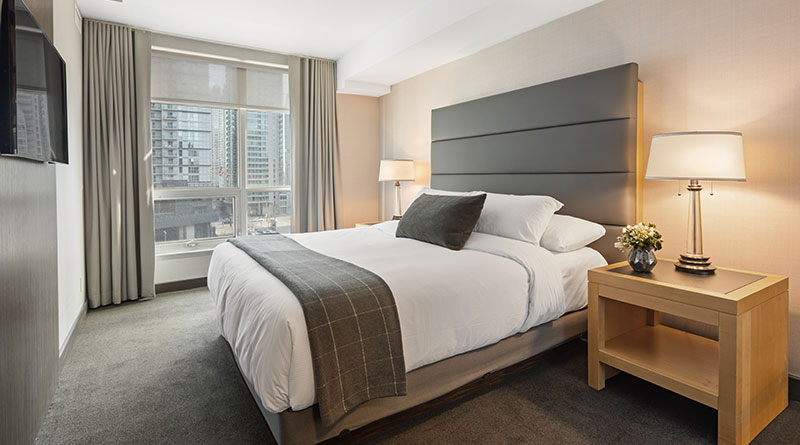Hoteliers Successfully Pass on Additional Costs to Consumers to Combat Inflation

UK hoteliers are successfully passing on additional costs to consumers and charging higher room rates to combat inflationary pressures, according to the RSM Hotels Tracker.
The data, compiled and produced by Hotstats and analysed by RSM UK shows that occupancy rates of UK hotels are continuing to increase, at 73.7% in June compared to 68.6% in May, but are still falling behind pre-pandemic rates of 84.6% in June 2019.
Despite only a modest increase in occupancy levels, average daily rates (ADR) of occupied rooms far exceeded pre-pandemic rates of £140.11, and was up from £134.90 in May to £157.04 in June. London saw an even bigger increase from £208.55 in May to £245.77 in June. Although rates typically rise in the summer months, this significant jump suggests that hoteliers are responding to inflation and the subsequent uptick in costs by increasing their room rates.
Revenue per available room of UK hotels also increased by £23 to £115.76 in June, and jumped over £41 to £181 in the London hotels market.
Chris Tate, head of hotels and accommodation at RSM UK, said:
‘The inflationary blow to UK hotels has been softened by the demand from summer trade, helped by the return of international travel, meaning hoteliers have been able to pass on the increasing costs to consumers through significantly higher room rates. But once the summer period passes and demand starts to plateau off, it’s likely they’ll find this difficult to sustain.
‘With travel chaos at Dover and numerous flight cancellations, a possible knock-on effect could be more people opting for a UK staycation instead of holidaying abroad. While occupancy rates still aren’t back to pre-pandemic levels, this suggests that hotels are able to cater to additional demand, this will be dependent on overcoming staff shortages in the sector.
‘It’s no secret that there are further headwinds ahead for the hotels sector, particularly with the cost of living crisis continuing to knock consumer confidence. Hoteliers will find they need to adjust their stance as time goes on, which might involve absorbing any additional costs during the quieter months of trading.’
Thomas Pugh, economist at RSM UK, added:
‘Roaring inflation, higher interest rates and the rapidly rising risk of a recession mean consumer spending will almost inevitably weaken over the next year.
‘Another surge in natural gas and electricity prices over the last few weeks means inflation will probably reach 12% in October, when Ofgem is likely to raise the energy price cap by another 50%. To combat surging inflation, the Bank of England will probably raise interest rates to around 2.75% by this time next year, adding to the pressures on households.
‘As a result, households’ real disposable income is likely to drop by 3% this year, and probably by another 1%-2%. This, in turn, will lead to a sharp reduction in discretionary spending.
‘However, households in the middle to upper income brackets make up the vast majority of spending on hotels and restaurants and these households are less impacted by inflation. What’s more, household balance sheets are still extremely strong, having been boosted by pandemic savings. This should mean that consumer spending falls by considerably less than the drop in real income.’
